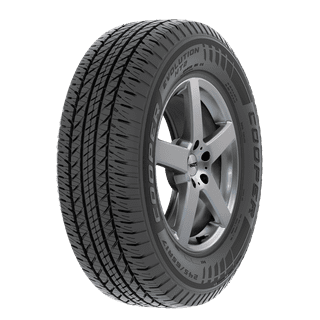Tire Service: Comprehending Tire Pressure Surveillance Systems
Recognizing Tire Pressure Monitoring Equipments (TPMS) is a critical aspect of maintaining ideal automobile performance and safety when traveling. With improvements in automobile innovation, TPMS has actually ended up being a standard attribute in modern automobiles, giving real-time information on tire pressure levels. Diving much deeper into the complexities of TPMS, one can uncover the numerous components that comprise this system and the relevance of each in ensuring precise tracking. From straight to indirect TPMS systems, the landscape of tire stress monitoring varies, each with its special set of considerations and advantages. Stay tuned to decipher the complexities of TPMS, from upkeep tips to the indisputable benefits of maintaining your tires appropriately pumped up. discount tires morris il.

Significance of TPMS
The value of Tire Pressure Monitoring Systems (TPMS) hinges on their capacity to boost car security and performance with real-time tracking of tire stress levels. Preserving the appropriate tire stress is crucial for guaranteeing optimum handling, stopping, and total security of a lorry. TPMS gives drivers with instant feedback on any type of underinflated or overinflated tires, allowing for prompt adjustments to be made.
Components of TPMS
Comprising various crucial elements, a Tire Stress Monitoring System (TPMS) functions as a sophisticated security function in modern-day cars. The primary elements of a TPMS consist of sensing units, a control component, and a warning indicator. Sensing units are normally situated in the tire shutoff stem or affixed to the wheel setting up, where they measure tire pressure and transmit data to the control component. The control module processes this information and sets off a caution if it spots significantly reduced pressure in any one of the tires. The warning indication, typically an icon on the control panel, alerts the motorist to check the affected tire or tires. Some advanced TPMS versions additionally present the real tire pressure readings for each and every tire, offering motorists with real-time info to ensure optimal tire efficiency and safety. By checking tire pressure constantly, TPMS aids avoid mishaps, minimizes tire wear, and enhances fuel efficiency, making it an important component for vehicle security and performance.
Sorts Of TPMS

On the other hand, indirect TPMS counts on the vehicle's wheel speed sensing units to check tire pressure. This system spots underinflation by comparing the rotational rates of the wheels. Indirect TPMS is much less pricey than straight TPMS, as it utilizes existing sensing units within go the vehicle.
While direct TPMS offers much more accurate readings, indirect TPMS is easier in design and normally calls for much less upkeep. Both systems have their advantages and restrictions, and the option in between them usually depends upon variables such as expense, lorry make, and individual preference. Recognizing the differences in between these 2 sorts of TPMS can assist car proprietors make educated choices pertaining to tire upkeep and safety.
TPMS Upkeep Tips
Reliable upkeep of TPMS is crucial for ensuring optimal performance and security of your vehicle. Routinely evaluating the TPMS sensors for any kind of damage or corrosion is crucial. Ensure that the sensing units are clean and free from particles that could interfere with their performance. Additionally, it is suggested to check the sensor batteries occasionally and replace them as required to guarantee exact readings. Conduct routine examine the check it out tire pressure degrees and contrast them with the TPMS readings to guarantee they are consistent. Alter the system adhering to the producer's guidelines if there are any type of disparities. Moreover, during tire rotation or substitute, make certain that the TPMS components are handled thoroughly to avoid any kind of possible damages. If the TPMS cautioning light illuminates on the dashboard, deal with the concern promptly by checking the tire stress and the general system for any type of mistakes. By adhering to these maintenance tips, you can lengthen the lifespan of your TPMS and improve the safety of your driving experience.
Benefits of Appropriate Tire Pressure
Maintaining appropriate tire pressure, as stressed in TPMS Maintenance Tips, is important for enjoying the various benefits connected with optimum tire stress levels. One of the primary benefits of maintaining the appropriate tire pressure is enhanced fuel efficiency. When tires are effectively inflated, there is less moving resistance, bring about better gas economic situation. In addition, proper tire stress ensures also tire wear, expanding the lifespan of the tires and promoting much safer driving conditions. With the right tire pressure, vehicles additionally have far better handling and traction, especially in unfavorable weather. This can enhance overall driving efficiency and safety and security for the driver and travelers. In addition, keeping optimal tire stress can add to a smoother and a lot more comfy trip by lowering vibrations and noise brought on by underinflated tires. In verdict, the advantages of proper tire pressure exceed just tire durability; they include boosted gas performance, enhanced safety, much better lorry performance, and total driving comfort.
Conclusion
In conclusion, comprehending tire stress surveillance systems (TPMS) is essential for keeping optimal tire stress and guaranteeing car safety and security. By recognizing the relevance of TPMS, knowing with its components, understanding the different kinds readily available, sticking to appropriate upkeep suggestions, and understanding the benefits of keeping appropriate tire pressure, chauffeurs can boost their driving experience and extend the life-span of their tires. Proper tire stress is essential to secure and effective lorry procedure.

Comments on “Get Expert Tire Services at Tire Shop Morris: Fulfillment Ensured”